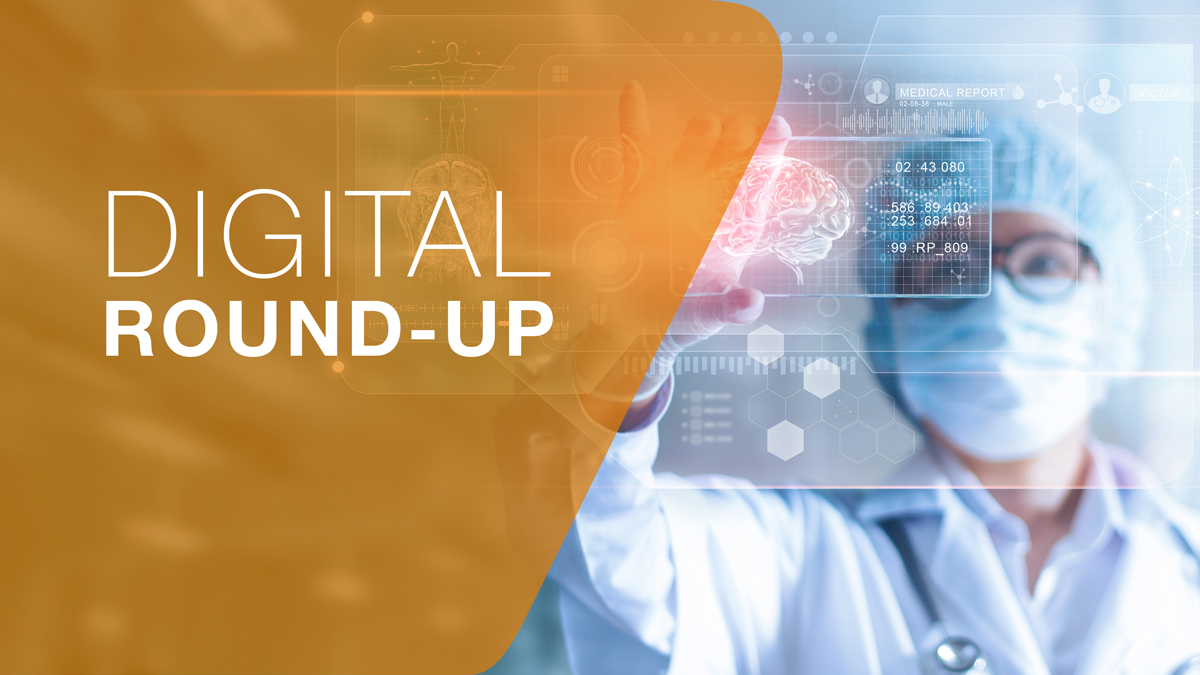Digital health round-up: J&J joins with Apple and more AI deals

Apple has chosen Johnson & Johnson as its big pharma partner to help develop its new Apple Watch with built-in electrocardiogram (ECG).
It’s no secret that companies like Apple and Google have big plans in healthcare, and the tie-up with J&J is just the latest move in this direction by Apple, which is constantly filing patents and investing in health-related R&D.
Apple has been actively developing its devices for a diverse range of healthcare applications, including patient monitoring, handling health records, data collection in clinical trials and real-world studies, and providing after-care to hospital patients.
This new collaboration centres on seeing if the Apple Watch’s heart rate monitoring ECG functions can be used for earlier detection of atrial fibrillation (AFib), a heart condition that causes an irregular and often abnormally fast heart rate.
While AFib typically causes warning symptoms such as dizziness and shortness of breath in around a third of cases it can go undiagnosed, putting people at risk of life-threatening complications such as a stroke. Having AFib gives a four- to five fold increased risk of stroke, and it kills around 130,000 people in the US every year.
J&J and Apple want to see if the Apple Watch can be used alongside an app developed by the pharma company to “accelerate the diagnosis and improve health outcomes of the 33 million people worldwide” living with AFib.
A multi-year research programme will be launched later this year in the US and will focus on individuals aged 65 or older. As well as looking at the device and the app’s impact on diagnosis, it will also assess adherence with medication for AFib.
Apple currently has FDA clearance for monitoring with its latest Apple Watch, so long as it isn’t used to replace traditional methods of diagnosis or treatment, but the link-up with J&J could give it a clinical pathway to seek an approved health claim in AFib, including stroke prevention.
“Too many people living with AFib are unaware of their risk, and ECG earlier detection, diagnosis and treatment of AFib could significantly improve outcomes,” said Paul Stoffels, J&J’s chief scientific officer.
“Based on the insights generated through this research program, we may be able to develop new ways to detect other health conditions earlier in the future that also exhibit measurable physiological symptoms.”
Pharma still focusing on AI
There have been a couple of eye-catching R&D deals involving artificial intelligence. Novartis has signed a five-year deal with Oxford University’s Big Data Institute to use artificial intelligence to predict how patients will respond to new and existing treatments for inflammatory diseases such as multiple sclerosis (MS) and psoriasis.
This is the latest part of Novartis’ digital transformation, a priority for CEO Vas Narasimhan, who took over in February last year.
Using the institute’s latest statistical machine learning technology and experience in data analysis, combined with Novartis’ trial data, the alliance expects to predict how patients will respond to existing and new drugs.
Artificial intelligence and machine learning company InveniAI has joined with Kyowa Hakko Kirin to harness the power of technology for drug discovery.
In this case Kyowa Hakko Kirin will use InveniAi’s technology, dubbed AlphaMeld, to find new uses for drugs already in the pipeline at the Japanese pharma.
The companies hope this will maximise the value of the drug firm’s R&D, which is focused on oncology, nephrology, and immunology and allergy.
FDA encourages ‘digital therapeutics’
The FDA has announced further details about its plans to hasten development of digital health products and tools.
Pear Therapeutics in 2017 became the first company to get a “digital therapeutic” approved by the FDA, for patients trying to fight addiction to opioid drugs.
The regulator is hoping to encourage further development of digital therapies and apps by using a framework based around pre-certification.
This allows for fast development of apps from manufacturers whose software has been reviewed and approved by the FDA.
In a post on the FDA’s website, the organisation’s commissioner Scott Gottlieb fleshed out the plans for further pilots of the programme this year.
He noted “promise of innovation” from products based on artificial intelligence software, which could alert doctors to a potential stroke, and smart watches that could help identify atrial fibrillation.
The regulations are designed around the need for frequent but fast reviews of digital technology that is often updated.
The pathway is aimed at products that the FDA deems to be of low or medium risk and already outlines quality standards and good manufacturing practices.
New tweaks announced by Gottlieb include a new process known as Excellence Appraisal, which will be used at the very start of development.
By collecting information early in development the FDA aims to further streamline the process by tailoring each filing to a particular digital health device based on the information gathered at the start of the process.












